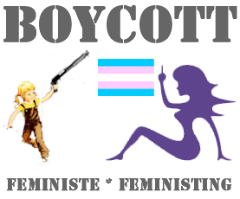Transition has also changed me a lot physically. Now I'm not going into all the physical changes I've done in transition because I find cis people seem to treat it as entertainment or use it to misspeak truths about me. I will however mention the most obvious public changes. My chest has changed significantly which I'm getting used to although I still often glance down and think "Oh, that's right, I have cleavage." My face has also changed, although I personally have a harder time seeing that change because I still seem to seek out what I've always seen in my face. I also am still slowly getting "hippier" and more bum, but that is a longer-term movement of fat. My hips sway more, although I can't say why. I am certain it's not a conscious thing, but that's about it.
I'm sure, of course, that a few readers here are going to be thinking I changed to look "pretty" or because "I like to wear frocks" or other reasons. Which, while it would have been hurtful to hear those words not that long ago, now I just find it funny. I never thought I would look pretty, although some people now tell me I am (and I'm willing to grant that I may be cute), so that's a non-starter. I could have worn dresses without transitioning. Actually, wearing dresses is something I had to be more or less convinced into wearing by cis people. I was surprised to find that dresses actually look better on me than jeans and T-shirts. They're also a lot cooler which is a big deal to me as my body often feels overheated.
But, here's the thing, I don't need to defend my wardrobe choices to anyone, any more than I need to defend my grooming choices, surgical choices, HRT choices, and anything else that affects my bodily appearance. Yes, I should be reflective about why I do things in a society that places so much emphasis on certain bodily disciplines for the two recognised genders, but ultimately I have to choose what I think will let me be safe in a violently transphobic society, what I feel comfortable with, and what I think expresses myself within the context of my culture. For instance, I think it's very inappropriate of butch women to declare that femme women are less feminist than them, are obviously too straight-identified even when the femme woman is often some form of queer, and that femmes need to stop identifying with disempowering feminity. Similarly, androgynous (or other non-gender-specific-expressing) women need to stop telling butch women to stop imitating men because it's showing a shame in being women, although obviously they shouldn't be
too feminine. Femmes need to not consider themselves the only "true" feminine women. In case you're missing the subtle point, each type of gender-expressing women mentioned is defining "the proper way to be a woman" as
her gender expression. There is no One True Way. Period.
I'm not going to tell you what your gender expression needs to be, because I likely don't know you or anything about you. I don't know what makes you feel comfortable. I don't know what you find makes you attractive to the people you're trying to attract (assuming you're trying to attract anyone). I don't know what you find properly communicates who you are to other people. Thus, my only advice to you is consider how you express your gender and then do so in a way appropriate to you. Be yourself. But think about who you are.
Of course, I would be remiss if I didn't point out that there are likely some limits and influences on your gender expression. Available income can be a strong determinant of the kinds of things you have available as choices. Available time can make it difficult to be able to see what's out there that you might like. Region can also be a factor. For example, I noticed that in one queer pub I was in in Liverpool the butch women were the ones not wearing (so much) makeup and with their hair pulled back in bands. Which makes a certain amount of sense as the Scouse standard for women based on what I saw on the streets of Liverpool and in conversations with a Scouser woman seems to be what I'm used to thinking of as femme. So butch there seemed less butch than what I'm used to. For trans women we often have to have more markers of femininity than cis women to be gendered as women. Disability can at least sometimes result in different choices for gender expression. Race and class can certainly be factors as well.
The point is that we are individuals. Demands that we adhere to standards based on feminist arguments/ideals is ultimately no different than demands that we adhere to societal standards. They are not and should not be absolutes for all of us. At best they are things to consider, things to reflect about. But if I see one more feminist blog post discussing shaving as a feminist issue, I'm going to barf. Such posts inevitably end up with people expressing what choices they have made and often doing so in defensive ways. If there's a wider discussion to be had, no one is having it. Sure, knock yourself out on your personal blogs, but for heaven's sake we really do have other issues we should be discussing than yet again whether or not we remove hair from certain parts of our body. Think for yourself, perhaps consider what others say, and make your own decision.





